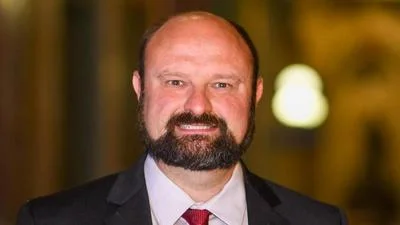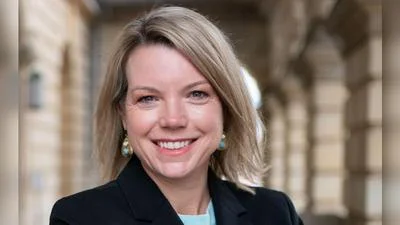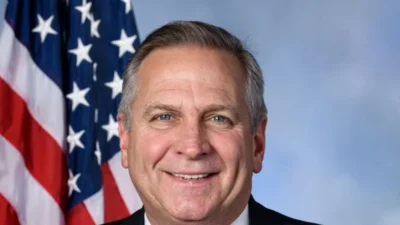A political action committee is allowed to contribute up to $50,000 to a candidate for statewide office in Illinois. | File photo
A political action committee is allowed to contribute up to $50,000 to a candidate for statewide office in Illinois. | File photo
Metro East's Katherine Ruocco, the Republican candidate for state House in District 113, spoke of the urgent issues that face Illinois recently: employment, state finances and reforms.
Ruocco's plan to put families back to work includes prioritizing education and job training in the state budget. The stopgap budget passed in late June did fund education, but it was a temporary measure until a full budget could be passed.
Job creation is also part of her employment plan. Implementing reforms to workers' compensation and reducing unnecessary regulations would encourage employers to stay in Illinois and create new jobs, she said.
The exodus of jobs and families from the state has increased, in part due to high taxes and Illinois' slow recovery from the 2007-09 Great Recession. Illinois has the highest out-migration of the 12 Midwestern states plus Kentucky, accounting for 425,000 of the 975,000 people who left the region.
Budget reforms are also on Ruocco's agenda. Spend less, reduce taxes and encourage economic growth are among the reforms that she plans to address in the legislature. She pointed out that Illinois lawmakers have a long tradition of making promises to taxpayers and when the elections are over, the promises are conveniently forgotten.
The impasse between the Democratic majority and Gov. Bruce Rauner and the Republican minority left Illinois without a budget for more than a year. The House did pass an unbalanced budget in late May, but it was voted down by the Senate. Ruocco's opponent, incumbent state Rep. Jay Hoffman (D-Swansea), voted in favor of the failed budget bill despite the budget plan being $7 billion in the red.
The legislature's stopgap budget provided funding for essential services but did not address the state's backlog of unpaid bills. The backlog continues to grow unchecked. It is estimated to reach $14 billion by the end of the fiscal year. If it is not addressed, the state comptroller warned that income taxes could rise as high as 8 percent in order to pay the bills.
Ruocco favors leading by example and intends to work toward reforming the state government. The first item on her list of reforms is term limits. While previous attempts at implementing term limits by voter initiatives and introducing legislation in the General Assembly have failed, Ruocco and other Republican candidates support continued efforts to limit lawmakers' terms.
If term limits were successfully implemented, it would affect long time legislators, such as House Speaker Mike Madigan (D-Chicago) and Senate President John Cullerton (D-Chicago). Madigan has held his House seat for 45 years. Cullerton held House District 7 seat from 1979-91, when he was appointed to the Illinois Senate to represent the 6th District. Ruocco's opponent Hoffman would also be affected by term limits. He first took office in 1991.
Ruocco supports campaign finance reform. While campaign reforms were implemented on Jan. 1, 2011, she said more can be done to reduce undue influence on politicians by contributors. Before the 2009 bill was passed, Illinois had no limits on campaign contributions. Currently, contributions from individuals are limited to $5,000, while contributions from corporations, associations and labor unions are limited to $10,000. A political action committee is allowed to contribute up to $50,000 to a candidate.
She is also in favor of independent investigations of waste and corruption in state and local government. Citizens should be able to trust their elected officials to do their jobs efficiently, without wasting taxpayer money.
"Help end the corruption and financial ruin of our great state and work together to put Illinois back on a path to prosperity," Ruocco's Facebook page said.






 Alerts Sign-up
Alerts Sign-up